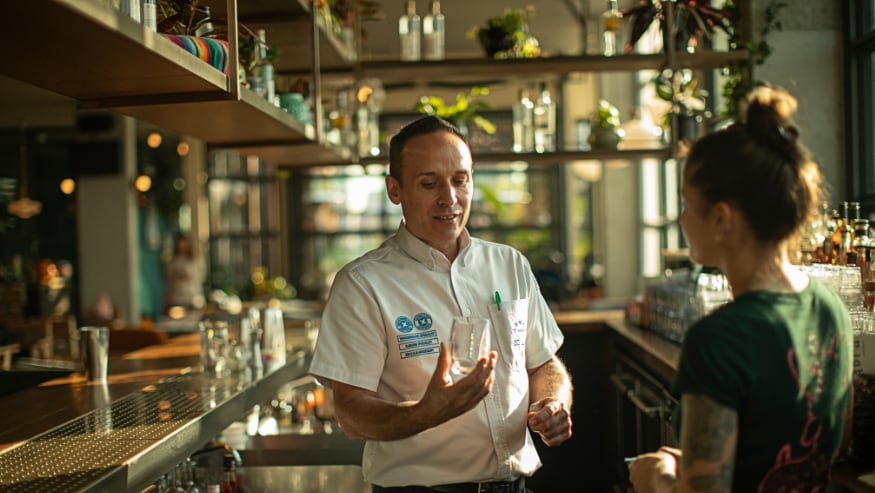Strengthening Food Safety Programs Through Effective Partnerships
By: Mandy Sedlak, Food Safety and Public Health Expert

Food Safety programs can be more robust with wide and deep partnerships. Get curious about what others are doing and share best practices on food safety issues. While food safety can provide a competitive edge, issues surrounding it do not. Our objective is to ensure safe food for all and to minimize illnesses globally. Partnerships can also drive food safety change through active involvement in committees, research, networking, and innovation.
Here are some ways to get involved and collaborate in the spirit of Food Safety:
1] Get involved with Healthy People 2030 objectives.
Healthy People provides 10-year, measurable public health objectives and tools to help track progress toward achieving them. The objectives highlight how personal, social, economic, and environmental factors can impact people’s health.
The Association of Food and Drug Officials (AFDO) supports certain HP 2030 objectives with resources, groups and committees specifically around Norovirus at retail, Salmonella associated with poultry and E. coli STEC associated with produce. Stay informed by following AFDOs e-news issues. The most recent 2024 Foodborne Illness Reduction via Healthy People 2030 Meeting Presentations are available here: 2024 Foodborne Illness Reduction via Healthy People 2030 Meeting – Association of Food and Drug Officials (afdo.org).
2] Get involved at industry and regulatory meetings.
- Conference for Food Protection (CFP)
The Conference for Food Protection is a non-profit organization established in 1971. Its purpose is to provide a formal process whereby members of industry, regulatory, academia, consumer, and professional organizations are afforded equal input in the development and/or modification of food safety guidance. Such guidance is incorporated into food safety laws and regulations at all levels of government throughout the United States.
- Association of Food and Drug Officials (AFDO)
AFDO works with food and medical product professionals representing a host of disciplines, including industry, government, academia, and consumer groups.
AFDO’s activities are focused on providing opportunities to share and collaborate as members work towards common goals. These opportunities include annual conferences; participation on boards and committees; work on publications and best practices; and developing official regulatory positions on food and medical-product safety matters.
By advancing more effective regulations, their members work together to network share and impact their communities. AFDO believes the ultimate benefit is protecting public health throughout the world. Each person, regardless of whether they represent regulation, industry, consumers, or educators is seeking to protect the public.
- National Environmental Health Association (NEHA) REHS/RS Credential
NEHA was first incorporated in California in 1937. The association's pioneers believed a standard was necessary if the environmental health field was to grow and take shape as a legitimate and widely respected profession. This standard, which has come to be known as the Registered Environmental Health Specialist/Registered Sanitarian credential, signifies that an environmental health professional has mastered a body of knowledge (which is verified through the passing of an examination), and has acquired sufficient experience, to satisfactorily perform work responsibilities in the environmental health field. They believe that the success of their members elevates the entire environmental health profession.
- International Association of Food Protection (IAFP)
A member-based association of more than 4,500 food safety professionals, IAFP is committed to advancing food safety worldwide by providing a forum for food safety professionals to exchange information on protecting the food supply.
- Global Food Safety Initiative (GFSI)
The Global Food Safety Initiative (GFSI) collaborates with the world’s leading consumer goods companies, across borders and barriers to help ensure safe food for people everywhere.
GFSI is a Coalition of Action from The Consumer Goods Forum (CGF), bringing together food retailers and manufacturers from across the CGF membership and an extended food safety community to oversee third-party food safety standards for food business operators globally.
If you manage a Brand Food Safety Program, it's essential to network and engage so that regulators can easily reach out to you when necessary.
3] Collaborate with your suppliers.
Work with the supply chain and culinary teams to preapprove all suppliers to your brand standards. Communicate with suppliers through regular check ins, focusing on your standards, specifications and agreed partnership goals. Ask their Food Safety experts questions.
A best practice in the industry is to survey the horizon for risks associated with the specific products and services you provide based on the customers and menu. Leverage your supplier’s expertise. Ecolab has multiple resources to support our partners, reach out to learn more.
4] Get Involved in industry networking.
Participate in peer-to-peer activities whenever you have the opportunity. That could be owner operator training sessions or conferences with industry affiliates or committees. Take the time to understand what others are doing and take back best practices to your own operation.
- National Restaurant Association
The National Restaurant Association supports of any size at every level of government. Partnering with your state/local restaurant associations is also a great way to get involved.
5] Build a partnership with your local health department.
If you manage a Brand Food Safety Program, it's essential to network and engage so that regulators can easily reach out to you when necessary. Restaurant owners and operators should also build a partnership with their local authorities. Here are some key points to keep in mind:
- Know the regulations.
- Take the time to accompany the inspector during their visit.
- Ask questions if you don’t understand or are unclear. Review the inspection report and notes together.
- Ask for best practices.
- Take immediate corrective action on violations.
- Request emergency contact information.
- Follow up prior to the next visit by highlighting the corrections and improvements made.
- Ask questions in between visits.



